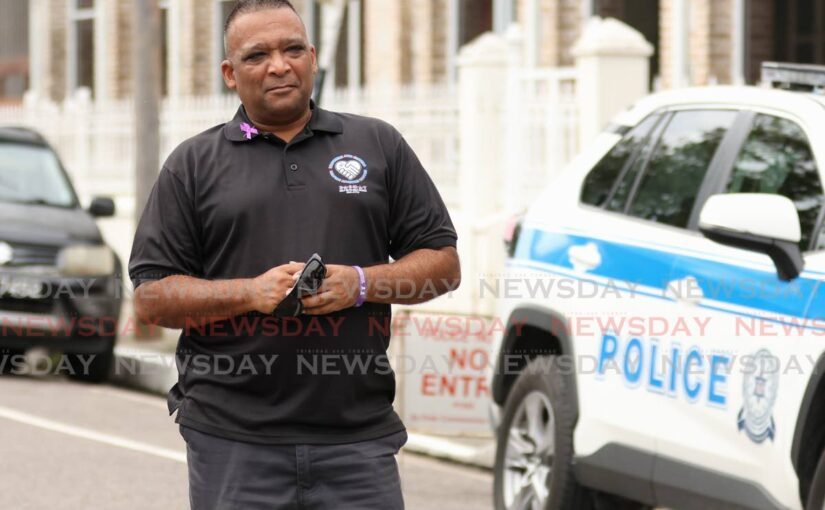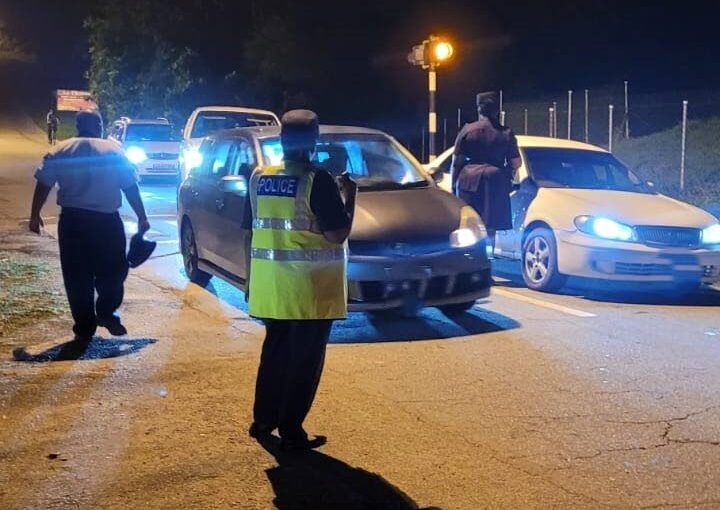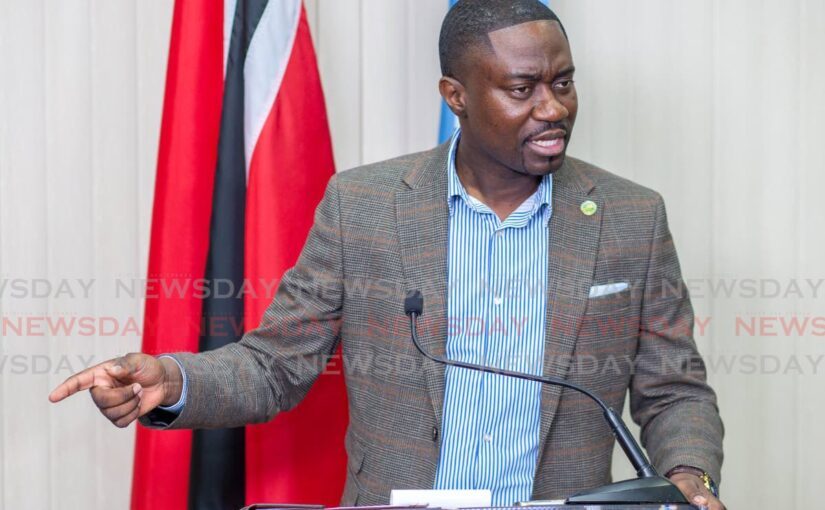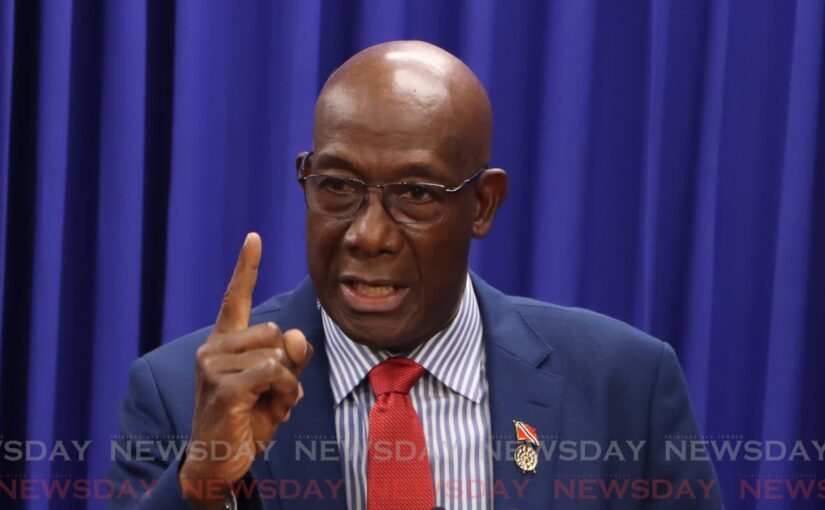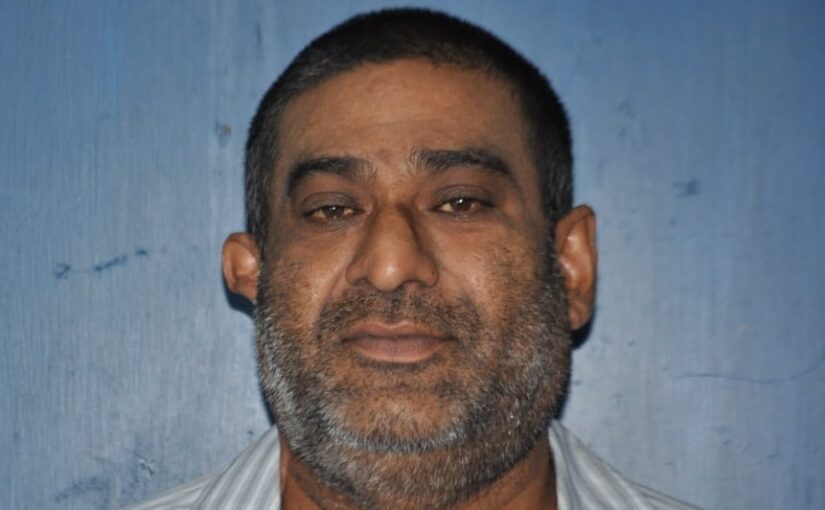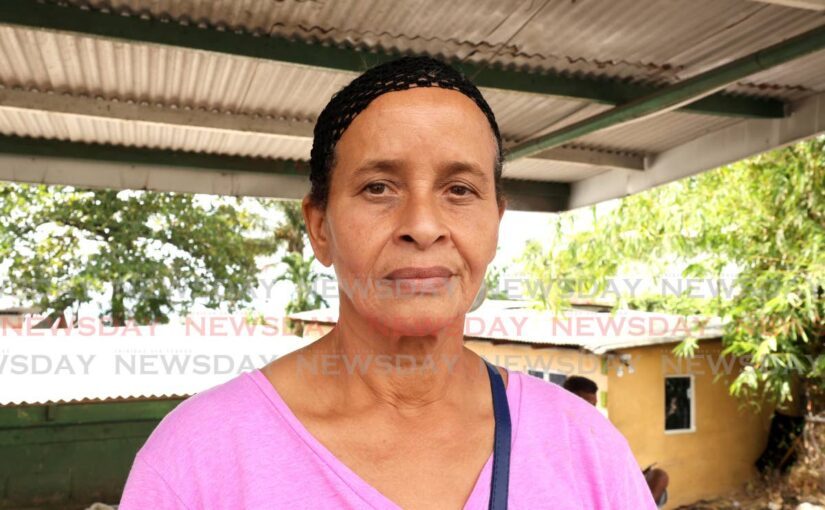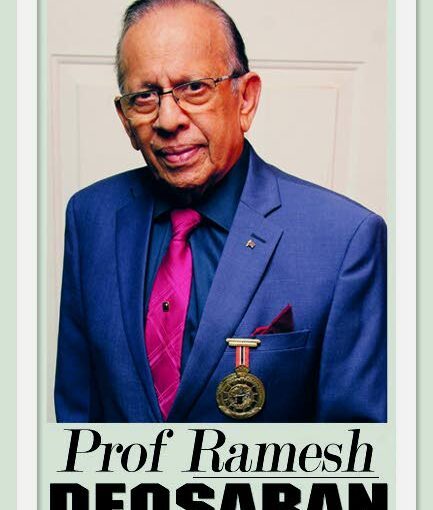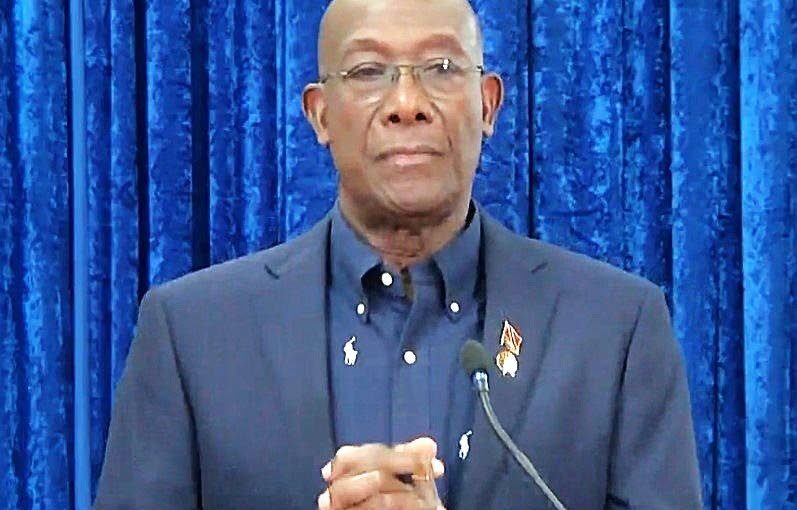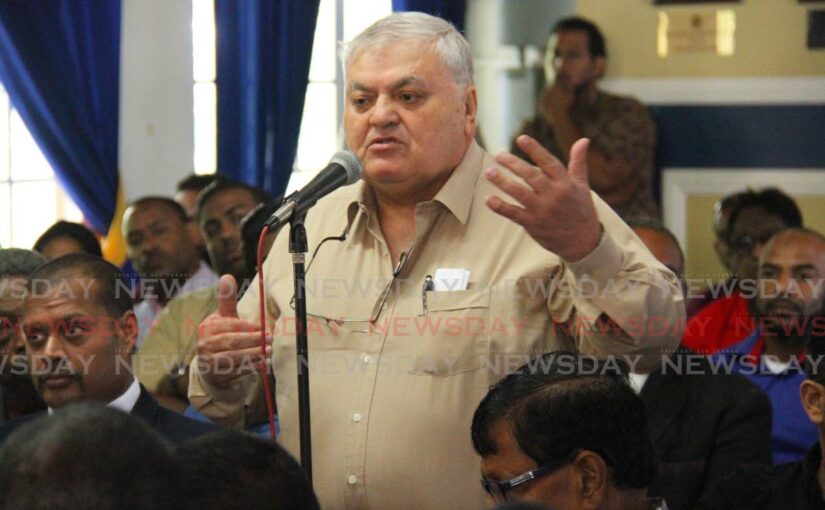Those accused of attacking the Capitol on Jan. 6, 2021, are now begging the courts to be allowed to attend Donald Trump's inauguration on Jan. 20....
Vous n'êtes pas connecté
- English
- Français
- عربي
- Español
- Deutsch
- Português
- русский язык
- Català
- Italiano
- Nederlands, Vlaams
- Norsk
- فارسی
- বাংলা
- اردو
- Azərbaycan dili
- Bahasa Indonesia
- Հայերեն
- Ελληνικά
- Bosanski jezik
- українська мова
- Íslenska
- Türkmen, Түркмен
- Türkçe
- Shqip
- Eesti keel
- magyar
- Қазақ тілі
- Kalaallisut ; kalaallit oqaasii
- Lietuvių kalba
- Latviešu valoda
- македонски јазик
- Монгол
- Bahasa Melayu ; بهاس ملايو
- ဗမာစာ
- Slovenščina
- тоҷикӣ ; toğikī ; تاجیکی
- ไทย
- O'zbek ; Ўзбек ; أۇزبېك
- Tiếng Việt
- ភាសាខ្មែរ
- རྫོང་ཁ
- Soomaaliga ; af Soomaali
Rubriques :
 Maroc - NEWSDAY.CO.TT - A la Une - 29/12/2024 05:55
Maroc - NEWSDAY.CO.TT - A la Une - 29/12/2024 05:55
Cheyenne Bashay is making a difference
CHERYL METIVIER CHEYENNE BASHAY recalls having two clear aspirations during his childhood – and being on the receiving end of discouraging comments from almost everyone around him. At about seven, he shared with friends and family his desire to become a helicopter pilot in the US army. Of course, he was reminded that he was not an American, and therefore there was no chance of his realising that aspiration. “Everyone said that it was such a loser dream…” Bashay went to Five Rivers Junior Secondary School after passing the Common Entrance Examination, and after a police officer visited the school to sensitise students about the dangers of drugs and crime, he decided on his second career option – being a police officer. He had always been considered a protector of sorts, standing up for other children who were being bullied, and as a natural empath, Bashay remembers that he was often referred to as "the police" by other students. Still, none of this stopped the naysayers from emerging to point out all the reasons why he could not become a policeman. At 17, after secondary school, Bashay migrated to the US and became a legal resident. He eventually joined the army, and it felt like he was on track to realise that first dream. But in order to qualify become a pilot, he had to be an American citizen. His progress in the army was further stymied by a major health challenge. He contracted pneumonia. Dream one was out the door. [caption id="attachment_1129403" align="alignnone" width="698"] Cheyenne Bashay, police officer, counsellor and founder of the BASHAY organisation with his right hand and secretary of BASHAY, Anita Francis at Woodford Square, Port of Spain on December 19. - Photo by Faith Ayoung[/caption] He was medically discharged from the army and eventually returned to Trinidad and Tobago a few years later, when he settled in to volunteering and counselling – something which he seemed naturally predisposed to do from childhood. Feeding the poor and donating at orphanages seemed almost second nature. He eagerly grasped the opportunity to become certified when it arose, and after completing a programme in domestic violence and child abuse at UWI, he found himself more deeply involved in volunteerism. As a survivor of domestic violence, he has connected in a real way with his clientele. In 2013, Bashay decided on making the second dream come true. He joined the police (Special Reserve). His background in counselling and volunteerism made him an easy fit for the Community Police Section, where he was immediately placed. It was an exciting period for him and he worked there for approximately six years. It was an incredible learning experience, and he “gained a first-hand understanding about how to deal with domestic violence situations, bullying, etc.” This knowledge gave him the opportunity to engage in more volunteer work,which he did both formally and informally, in the wider community as well as with institutions like Servol. This was an extension of the work in which he had previously been involved. Over the years, Bashay had established professional relationships with several schools, and based on the trust that had developed, he often hosted talks with students. Unfortunately, a single unsavoury incident at a school where he worked with young people led to this access being curtailed. An invited guest reportedly appeared at the school improperly dressed and used inappropriate language. In order to mitigate the likelihood of a repeat of any such incident, the Ministry of Education andschool administrators became more guarded in who is permitted to speak and counsel. The issue of confidentiality has also become a concern, as principals focus on safeguarding the reputations of their schools. Bashay decided to formalise the work he does by incorporating BASHAY – Brothers and Sisters Helping Affected Youth – as a non-governmental organisation in 2023, after providing counsel and support to people in challenging situations. [caption id="attachment_1129402" align="alignnone" width="1024"] From left, Enos, four, Jael, six, and Lily Pierre, three, who were out for a day at the park get to lookat Cheyenne Bashay’s police badge at Woodford Square, Port of Spain on December 19. - Photo by Faith Ayoung[/caption] The team comprises eight members who function on a part-time voluntary basis. Since registering, they are now in the process of getting accounts and finances organised, but at the moment, they are largely self-funded and supplemented by the kindness of friends and others in their community. He said BASHAY has typically operated in response to needs identified in the community by providing direct assistance in the form of food, clothing and shelter; and indirectly by acting as a liaison, making connections with other NGOs and with government ministries and agencies. Another significant area is its response to reports of bullying and domestic violence, which has led it to become more pre-emptive by sensitising young people on these two critical areas. This approach feeds into Bashay’s passion for motivational speaking, through which he has made several successful interventions over the years. "As a Christian I believe that we are all God’s children, and BASHAY's mandate of reaching youth extends to all God’s children. Whether you are nine or 99, if you need the help, we are there for you.” So far the activities have been on the basis of referrals, and mostly word of mouth. Very often, the NGO receives donations of food and clothing, which it distributes when it is approached for help. The same is done when it is invited to offer counselling and mentoring sessions. “I don’t charge anything for these sessions, but people sometimes make donations, which are appreciated.” The donations go back into the charitable work that BASHAY does. Material support dwindled substantially during the pandemic, while there appeared to be an increase in breakdown in family relationships, often related to domestic violence. The limited available resources in the state sector, including the police, demonstrate the need for the support of NGOs. Bashay sees the partnerships as critical, as NGOs have the capacity to fill the gaps where the government agencies can’t provide support. Bashay explained that he and his members even make time to do one-on-one interventions when, for example, a parent may be having challenges with a troubled young person. Some come to their attention from the wider community, while he sometimes encounters others at police stations while on duty. Bashay has observed a marked increase in the incidence of domestic violence against men. He is deeply invested in this area, because he recalls having gone to the station when he was a victim: “And the officers laughed and asked me to leave the station because I was wasting their time.” He said recently he was told about a male victim whose partner smashed all his car windows. He too was dismissed when he tried to make a report. Another critical dynamic is the often-seen scenario where women report abusive situations, but quickly withdraw after the police engage the offender. Such situations unnecessarily deplete human resources which could have been otherwise allocated. “It’s inconvenient, but I understand why she does it – out of fear. If he spends a couple days in prison, imagine how angry he will be once released. "I’ve seen situations where a woman would come, make a report, and the next time I saw her she had a broken arm." He said many women do all that they can, including obtaining restraining orders, but to no avail. Even in more extreme situations where victims are taken to safe houses, challenges are encountered. “We put this woman in a safe house in south Trinidad, a few days later the young lady got a phone call, ‘Babe, I am in --- and I’m missing you.’ "The safe house was compromised, because he came to the house to get her.” But on the other hand, he said, "Among the volunteers are also women who have survived these acts of violence, and there is value in the counsel that they can offer. …But we are not giving up. At BASHAY, the members are not giving up. People come, we will help them. Tight now, what we need is probably a safe house…sometimes there are women who have nowhere to sleep – pregnant mothers, mothers with little babies.” Bashay became emotional as he highlighted various challenging scenarios in which people find themselves, and his ability to help is very limited. “Honestly, my heart goes out to them.” His full-time commitment is to figuring out ways to help others, and to connect like-minded people and create synergies. “It’s difficult,” he said, because although the Children’s Authority, the Ministry of Social Welfare, the police Child Protection Unit, YTEPP and other stakeholders all have a role, the bureaucracy can prove a disincentive for people in difficult circumstances. He said there continues to be a space for bodies such as BASHAY where ordinary people can reach out for one-on-one support. Cheyenne Bashay works out of the Las Lomas area and can be reached at 384-4112. The post Cheyenne Bashay is making a difference appeared first on Trinidad and Tobago Newsday.
Articles similaires
Police Association: Cops need tools to fight crime during SoE
TRINIDAD and Tobago Police Service Social and Welfare Association president Gideon Dickson has described the Prime Minister's press conference on...
Chief Sec: SoE is an admission of failure
THA Chief Secretary Farley Augustine believes government’s decision to suddenly implement a state of emergency (SoE), after resisting previous...
PM appeals to cops to do more, issues stern words to judiciary: Criminals deserve no mercy
THE Prime Minister said he was “very disappointed” at the country’s rate of violent crime, as the year’s murders were reportedly at 615...
Two-time wife killer jailed for 27 years
A brutal, heinous and callous killing of a wife by someone who has killed a wife before earned a Barrackpore lorry driver a 27-year...
A mole infiltrated the highest ranks of American militias. Here's what he found.
John Williams kept a backpack filled with everything he’d need to go on the run: three pairs of socks; a few hundred dollars cash; makeshift...
Diego Martin West residents ready for fresh face to represent them
THERE were mixed reactions from Diego Martin West constituents on January 4 to the Prime Minister’s announcement of his intended retirement from...
Michelle, Moruga and murders
Moruga “mom hacked to death,” screamed big front-page headlines. Hours after that, Michelle Benjamin (MP for Moruga/Tableland) cried, shedding...
Former minister, IDA: Timing of PM’s resignation bad
FORMER PNM minister Mariano Browne has questioned the timing of the Prime Minister’s announcement of his decision to quit electoral politics at...
NTA knocks PM’s response to spiralling murders
THE National Transformation Alliance (NTA) has lambasted the Prime Minister’s response to the country’s spiralling murder rate, describing his...
Les derniers communiqués
-
Aucun élément
